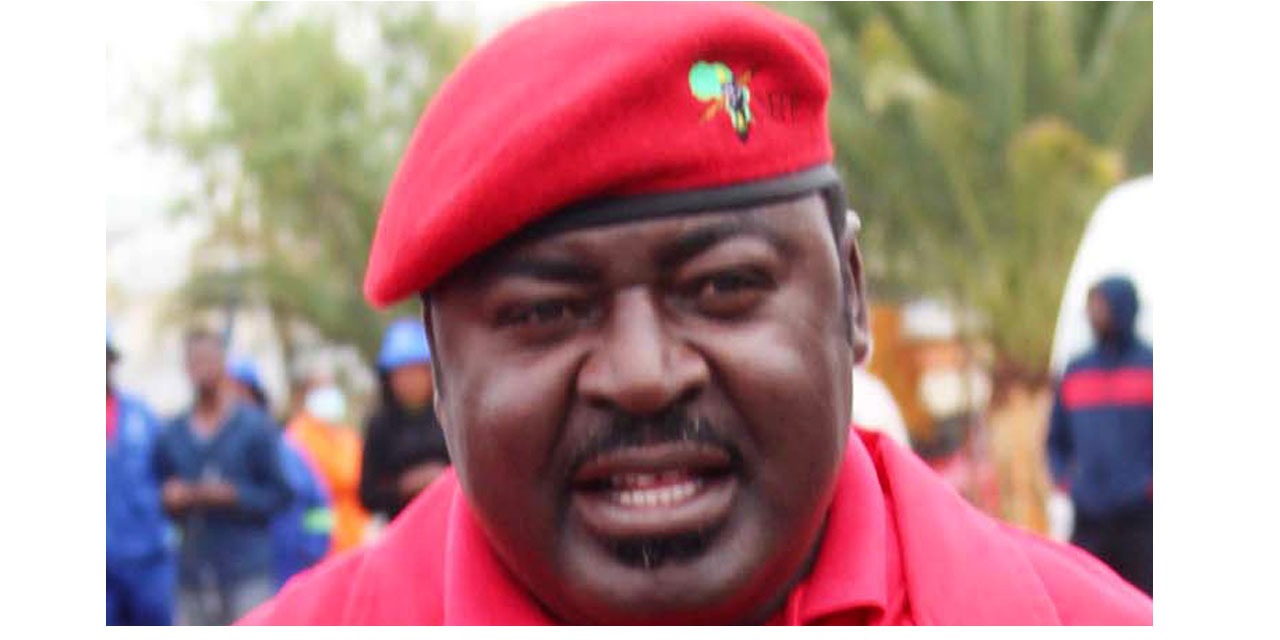Martin Endjala
The Political analyst, Henning Melber said the ongoing court saga where Michael Amushelelo is being held in police custody without bail, borders on a judicial scandal but the process and the elements of the case against him should not be perceived as a failure of democracy.
Melber made these remarks yesterday while reacting to Epafras Mukwiilongo, the president of the Namibia Economic Freedom Fighters (NEFF), who questioned the principles of democracy in Parliament with regard to Amushelelo being denied bail on numerous occasions.
Melber said Amushelelo’s case is a matter in court, and his treatment needs to be criticised and opposed by democratic forces, but the case and how it is processed should not be viewed as a failure of democracy in the country.
“That is Namibian democracy in practice and it contradicts his simplifying statement. He suggests that Namibian democracy would have to reactivate elements from a precolonial past rooted in traditional authorities, traditions and leaderships. But that is comparing apples with pears. He should not reinvent history and romanticise the past,” Melber argued.
He said Mukwiilongo’s “romantic disarray” of history is misleading and a confused testimony of backwardness.
“Taking up and addressing flaws in the rule of law is one of the purposes of democracy and people participating in it. The member could have spent more time on this case rather than on far-fetched and misleading excursions into a failed engagement with democracy,” Melber advised.
During a parliament session this week, Mukwiilongo raised concerns about the state of Namibia’s democracy with arguments as to whether it is living up to its intended mandate.
He pointed out that despite Namibia having a constitution that safeguards the right to differ when it comes to opinion and political persuasion, the haunting and complete isolation of some people who have opposed a certain political party is concerning.
He questioned if the laws have been created to cement the rights of every Namibian as well as to ensure equal participation in the economic progress of the nation.
“I ask these questions, Honourable Members, at a time when the Namibia Economic Freedom Fighters, have seen the use of our laws and courts to silence voices of dissent. I am speaking about Commissar Michael Amushelelo, and activist Dimbulukeni Nauyoma and have Honourable Inna Hengari in mind. The very common statement that “it is cold” outside the Swapo party is suggestive of a lack of tolerance for a differing opinion from certain political figureheads and their use of state institutions and resources to revenge and inflict economic harm,” he said.
Mukwiilongo said that recent developments with regard to Amushelelo indicate that there is no such thing as democracy. He added that he suspects that Namibia’s founding fathers adopted a system which they changed to suit their version of the country’s historical, cultural and traditional political set-up.
He was of the view that Namibia’s democracy is an alien system that has been rigorously applied to speak to Namibians, often in a language they do not fully understand.
Mukwiilongo views the Namibian democracy as a system that has completely divorced itself from the country’s traditional roots and how the forefathers governed the land. He added that democracy espouses the idea of a multi-partisan political contestation and that it must be at the centre of nationhood.
“Namibian political pluralism has served to divide us. It created too many voices that have fought against each other, and at the same time ensuring the domination of one political party against the disunited force of many other formations,” he argued.
The parliamentarian added that he does not disagree with the notion that democracy has played a pivotal role in strengthening Namibian politics and governance but he submitted that the current format is not ideal.
He maintained in his arguments that Namibia must remain vigilant in preserving and enhancing democracy while learning from global experiences.




